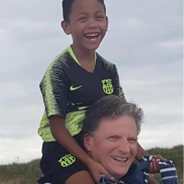Interlocutory Applications - Tactics & Strategies for Personal Injury Litigators
Introduction
In any multi-track personal injury litigation, interlocutory application can have a significant, and often decisive, impact on the outcome.
This virtual classroom seminar, which is aimed at experienced PI litigators, focuses on the application, the tactics and the strategies to give you the best chance of succeeding on the application and using applications strategically.
It will consider the applications from the perspective of the claimant and defendant.
What You Will Learn
This live and interactive session will cover the following:
- Groundwork - preparing the application
- What type of application to make
- The use of the ‘cascade-application’ to protect yourself on costs
- The groundwork - witness evidence and exhibits
- Who should prepare the statement
- What it should say and - more importantly - what is must not say
- Using exhibits sparingly
- Split trial
- Why you definitely want one - and why you definitely do not
- The split trial as a tactical weapon
- Focus on the court, not on your client
- Applications under CPR 14
- Which concessions entitle you to judgment and which do not
- Resiling from admissions - what is the best strategy?
- Why witness evidence is critical to success in CPR 14 applications
- Summary judgment/strike out
- When to strike out the other sides statement of case and when to strike out only part of it
- CPR 3 v CPR 24 applications
- What to do when the other side amend their statement of case after your application has been made?
- Interim payments on account of damages
- Core principles that your evidence must address
- Use of Part 36 within interim payment applications
- Don’t get distracted by the claimant’s ‘need’ for the money
- Applying for expert evidence outside of the core experts
- Forensic accountants, employment experts, technology experts, life expectancy experts
- Whether to get the report and apply or apply before getting the report
- Creating the best evidential environment to allow the application to succeed
Recording of live sessions: Soon after the Learn Live session has taken place you will be able to go back and access the recording - should you wish to revisit the material discussed.











